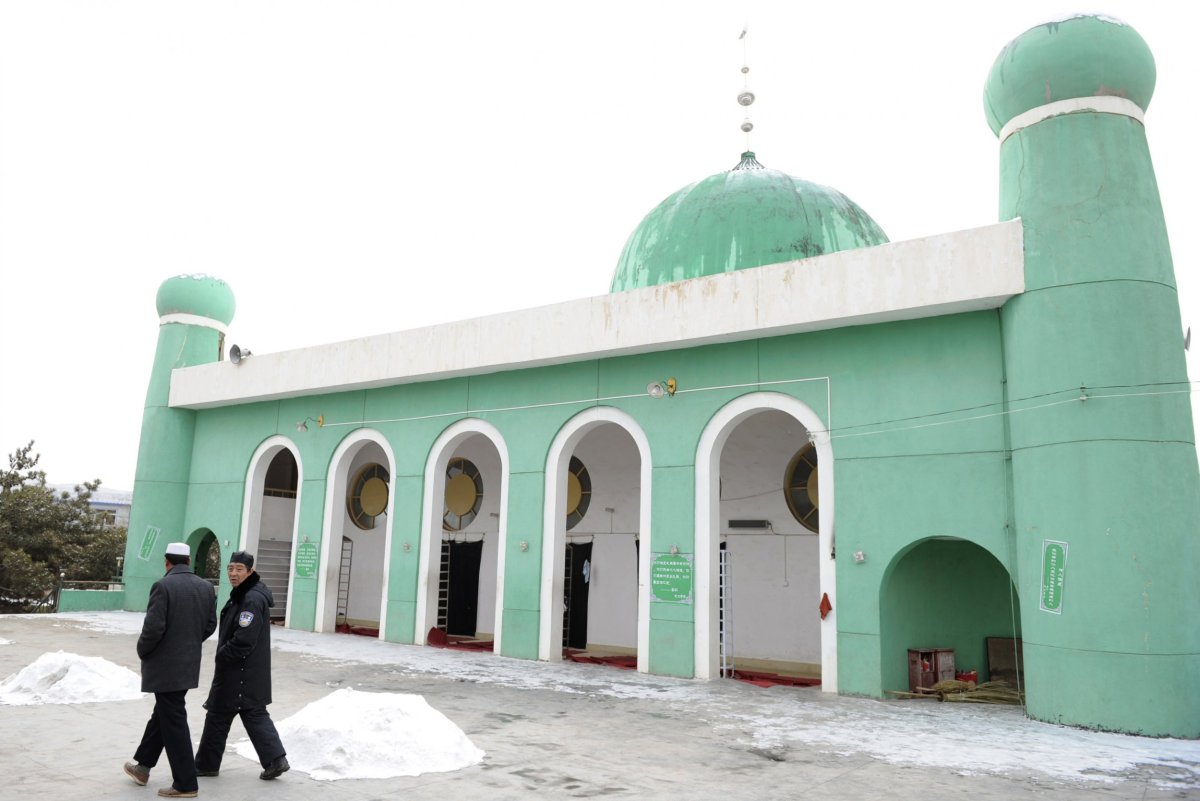Chinese authorities have renamed a river with an Arabic-sounding name in Ningxia—an autonomous region and home to the mainland's largest Hui Muslim population—in a bid to weaken Islamic influence in the area.
The Aiyi river—which was originally named after Ayisha, one of the wives of the Prophet Muhammad—has been renamed Diannong, the ancient name for the capital of Ningxia, now called Yinchuan, reported Inkstone. The 112-mile-long river spans six counties. It runs from Yongning County to the Yellow River.
"We received a request from the local water resources department based on a regulation on the names of public locations," the Ningxia government said. "The name has been changed after on-site examinations and discussions by experts."
The 2013 regulation, referenced in the Ningxia government's statement, prohibits the naming of public spaces after foreign figures or locations.
"This conforms to China's policy of Sinicizing religions and adapting them to socialist society, as well as fitting with local history and culture," Xiong Kunxin, a professor at Minzu University, in Beijing, told Global Times on Wednesday.
Ningxia is home to the mainland's largest Hui Muslim population. The two million Hui Muslim residents in the area make up around one-third of the northern region's total population.
There are over 10 million Hui Muslims across China, or approximately less than 1 percent of the mainland's total population. They originated from Arab and Central Asian Silk Road traders. The local government has been attempting to minimize their influence in the region since 2016.

The name change has been viewed by many as the latest move by the government to bolster Chinese culture in Ningxia.
Wang Genming, a researcher at the Ningxia University's Institute of Hui Studies, told Inkstone that the renaming came on the heels of state efforts to remove Arabic signage and Islamic decor.
"Changing names shows the local government's ignorance and stupidity," said Wang. "Aiyi is just a name reminiscent of a beautiful Hui lady."
"Even the local theater and residential compounds are being renovated to remove ethnic features," he added. "More than 860 books regarding Hui ethnicity have been taken off the shelves in the libraries."
These efforts are reportedly part of the government's controversial campaign, introduced by President Xi Jinping in 2015, to align religions with the ruling Communist Party's definition of Chinese culture.
Xiong told Inkstone, "Sinicizing religion is 'de-extremifying' religion. This name change shows the central government's determination to correct a trend of Islamization."
Uncommon Knowledge
Newsweek is committed to challenging conventional wisdom and finding connections in the search for common ground.
Newsweek is committed to challenging conventional wisdom and finding connections in the search for common ground.
About the writer
To read how Newsweek uses AI as a newsroom tool, Click here.








